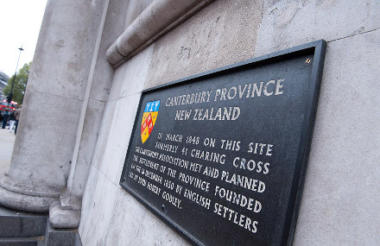Small and specialist aid charities are at risk of being frozen out of government coronavirus funding, according to aid experts.
The warnings were issued after the Department for International Development’s funding plans started to emerge.
Civil Society News understands that fewer than 40 charities will be eligible to apply to DFID’s £20m coronavirus emergency fund, which was announced by the government last month as part of a £200m package of support for international aid work.
The majority of the £20m funding will only be open to a “pre-approved” list of large charities, according to several sources familiar with the application process.
These charities are already part of DFID’s Rapid Response Facility (RRF), an existing mechanism for allocating funding during global emergencies. The 36 organisations on the list include ActionAid, Islamic Relief Worldwide, Oxfam GB, the British Red Cross and Save the Children UK.
Discussions between government officials and organisations on the RRF are understood to have started this week, to fund work focused on 15 countries on the frontline of the coronavirus outbreak.
‘Relatively small group’
Bond, the umbrella body for organisations working on global development, warned that this process would exclude smaller charities with much-needed expertise, especially in the absence of other sources of funding.
Graham McKay, Bond’s chief operating officer, told Civil Society News: “The RRF is an important mechanism during times of crisis as it tops up existing country-level funding. In reality, there is a relatively small group of organisations that are eligible, and an even smaller number that actually get their programmes approved.
“As a result, many organisations, often small or with specialist expertise, are unable to access these funds to help respond to the crisis.
“At a time when it is difficult to fundraise, government funding for NGOs will determine what they can and can’t do to try and reach the world’s most vulnerable people during this pandemic.
“We would urge the government to increase the amount of funding directly available to NGOs, by RRF and other mechanisms, to an initial £100m and set up a stabilisation fund to help all NGOs, both small and large, survive this difficult period so they can continue to ensure we do not leave the poorest behind”.
Bond has previously estimated that international development charities face a funding shortfall of £1.28bn as a result of the pandemic and its impact.
Labour: Support for charities ‘of all sizes’
Preet Kaur Gill, Labour’s shadow international development spokesperson, also criticised the decision.
Gill said: “The only way we are going to prevent the spread of Covid-19 and reduce the damage it risks causing to the world’s poorest and most vulnerable is if we work with the widest range of actors available.
“NGOs each have their own unique experiences, relationships and specialisms which, together, have the potential to play a vital part in our global efforts against this pandemic. But they need to be properly supported.
“That’s why Labour is calling on the government to ensure resources are available for NGOs of all sizes already working on the ground with no unnecessary delay to prevent lives being lost”.
Related articles











